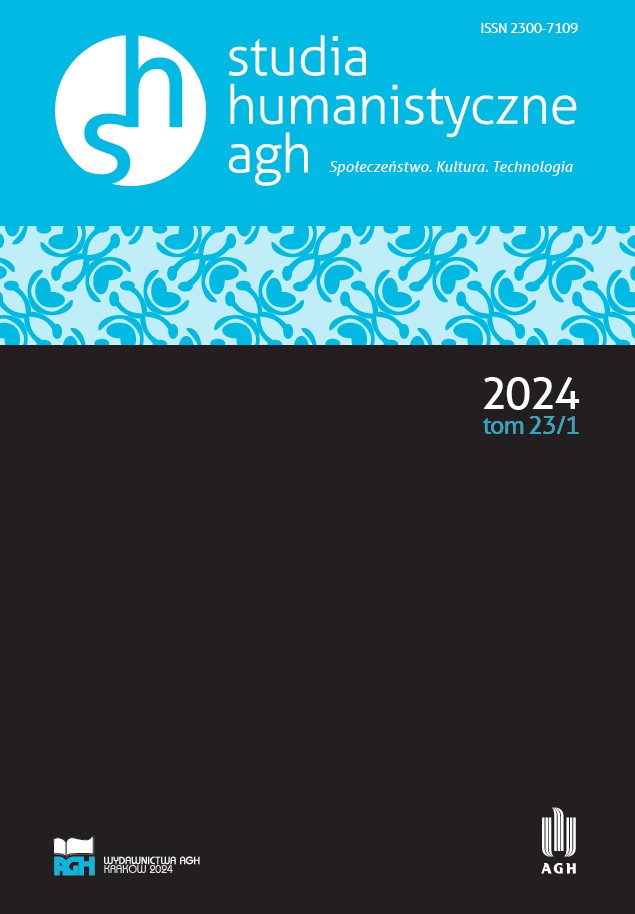Weight-Related Photos on the Instagram And Female Well-Being – An Eye-Tracking Approach
DOI:
https://doi.org/10.7494/human.2024.23.1.6324Keywords:
well-being, women studies, body image, social media, InstagramAbstract
This study investigates the role of eye tracking in detecting bias in body image studies, focusing on Instagram. Combining eye tracking with a questionnaire, it hypothesized a partial discrepancy between declarations and eye tracking, which is confirmed by the obtained results. Psychometric scales assessing well-being were additionally employed, uncovering correlations solely with eye tracking variables rather than declarations regarding body shape preferences. The eye-tracking data offered fresh insights into participants’ avoidance strategies and attention to subjectively unattractive areas when viewing very slim silhouettes. Furthermore, they tend to reveal lower self-esteem among individuals potentially internalizing societal beauty ideals. The exploratory study implies that weight-related Instagram content might affect participants’ psychological well-being, with eye tracking potentially uncovering biased attention to attention-capturing body areas. This paper may provide valuable insights for further research on body image, well-being, and the influence of social media on it.
Downloads
Downloads
Published
Issue
Section
License
Authors who publish with this journal agree to the following terms:1) Authors retain copyright and grant the journal right of first publication with the work simultaneously licensed under a Creative Commons Attribution License that allows others to share the work with an acknowledgement of the work's authorship and initial publication in this journal.
2) Authors are able to enter into separate, additional contractual arrangements for the non-exclusive distribution of the journal's published version of the work (e.g., post it to an institutional repository or publish it in a book), with an acknowledgement of its initial publication in this journal.
3) Authors are permitted and encouraged to post their work online (e.g., in institutional repositories or on their website) prior to and during the submission process, as it can lead to productive exchanges, as well as earlier and greater citation of published work (See The Effect of Open Access).



